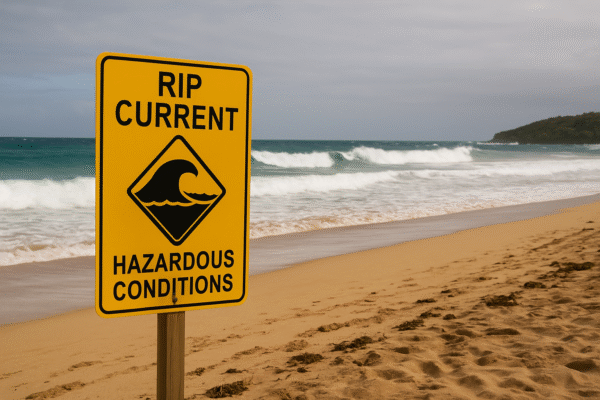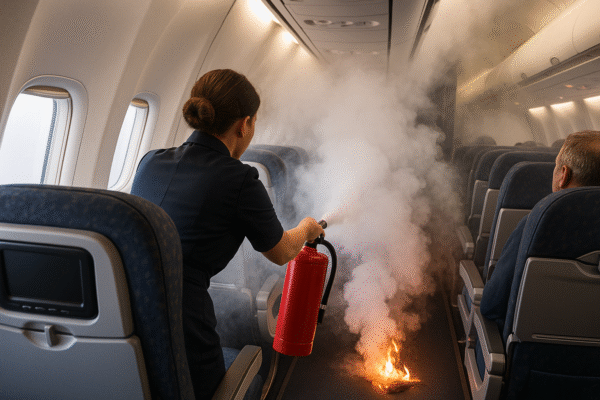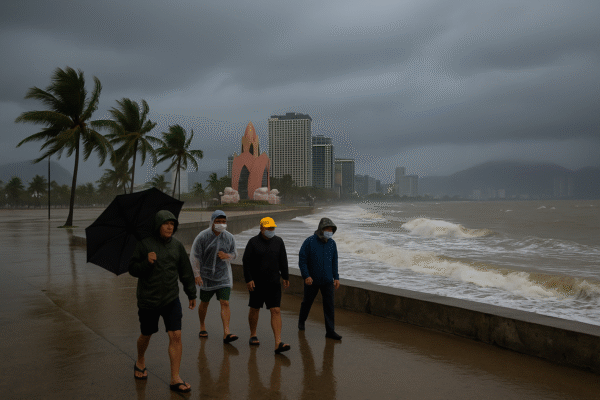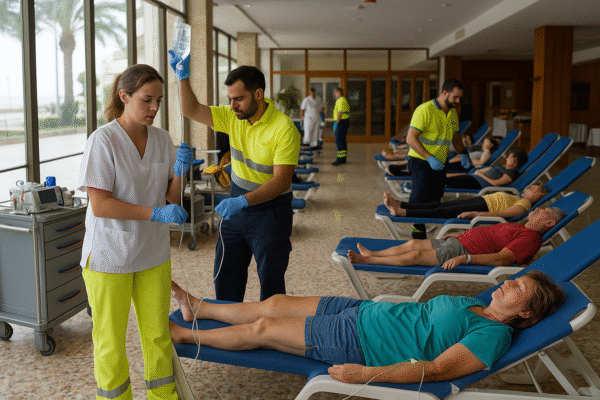Late August 2025 saw a serious health emergency unfold at the celebrated 4-star Izán Cavanna Hotel in La Manga del Mar Menor, in Spain’s Murcia region. More than 100 guests—including young children and a 15-month-old infant—fell ill following a buffet lunch on Saturday, August 23. Early indications point toward salmonella contamination, with symptoms ranging from vomiting, diarrhoea, and abdominal pain to fever affecting a broad swath of holidaymakers.
By the morning of August 24, health officials had escalated the response. A temporary medical station was erected within the hotel grounds to treat affected guests swiftly. Paramedics and medical teams from nearby municipalities—Cartagena, Los Alcázares, and Puerto Lumbreras—mobilised to assist. At least 20 individuals, including several children, were taken to the emergency department of Santa Lucía Hospital in Cartagena for evaluation. Thankfully, most were discharged shortly thereafter, though two remained under observation.
Swift action extended beyond patient care. The Regional Ministry of Health ordered an immediate cessation of all kitchen operations at the hotel. A comprehensive deep-clean and disinfection of food preparation areas commenced, and food handling protocols came under intense scrutiny. Meanwhile, samples from buffet items—as well as stool swabs from kitchen staff—were collected, and external caterers were tasked with providing meals to guests during the investigation.
Amid the operational response, guest dissatisfaction grew. Many criticised the hotel’s delay in communicating the gravity of the situation. Complaints included claims of limited outreach even while promotional posts about cocktails and resort amenities continued on social media, sparking frustration among those grappling with illness or caring for sick family members.
A recurring theme among guests was speculation about the buffet’s spinach-filled pasta or certain fish dishes as the possible source, though health authorities have yet to confirm specific culpability. Their investigation remains ongoing, with results pending laboratory analysis.
This unsettling episode serves as a powerful reminder of the fragility of guest confidence—and the crucial role of food safety in tourism. La Manga’s golden beaches, lively watersports scene, and sun-drenched appeal have long made it a magnet for international visitors, especially during peak summer months. Yet the reputation of such destinations is tightly bound to assurance in health and hygiene standards.
For the hospitality industry—in La Manga and beyond—the outbreak underscores the necessity of stringent procedures: temperature control, rapid reporting of illnesses, regular inspections, and transparent crisis communication. Hotels catering to families and multigenerational groups must especially prioritize preventative measures to avoid harm and maintain trust.
Meanwhile, local tourism authorities are closely monitoring developments. Rebuilding La Manga’s image will require not only thorough cleaning and confirmed safety protocols at the Izán Cavanna Hotel, but broader reassurance across the region’s accommodations. A coordinated campaign highlighting hotels that meet robust food safety certifications could help restore confidence.
In the crowded arena of Mediterranean tourism, destinations that demonstrate commitment to guest welfare will stand out. As Murcia’s tourism boards consider next steps, there lies both a challenge and opportunity: to emerge from this incident with stronger safeguards, revitalized credibility, and renewed peace of mind for visitors seeking safe, sun-filled escapes.
For more travel news like this, keep reading Global Travel Wire














